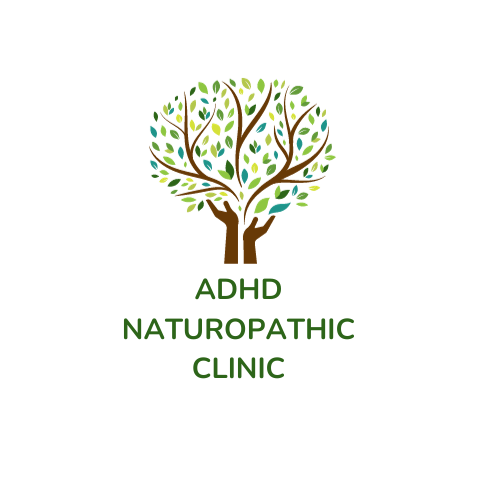Mold is a common household concern that can have far-reaching consequences on our health. As a Naturopathic Herbal Therapist, understanding the relationship between mold exposure and conditions such as fibromyalgia, arthritis, and chronic pain is crucial. In this article, we'll explore the potential connections and how addressing mold issues may contribute to overall well-being.
Mold and its Health Impacts: Mold is a type of fungus that thrives in damp and humid environments. When present indoors, mold can release spores into the air, which, when inhaled, may lead to various health problems. While the effects of mold exposure can vary from person to person, it is known to trigger or exacerbate certain conditions.
Fibromyalgia: Fibromyalgia is a chronic condition characterized by widespread musculoskeletal pain, fatigue, and tenderness in specific areas of the body. Some studies suggest a potential link between mold exposure and the development or worsening of fibromyalgia symptoms. The immune system's response to mold spores may contribute to inflammation and pain in individuals with fibromyalgia.
Arthritis: Arthritis is a group of disorders involving inflammation of the joints. Mold exposure may impact arthritis patients, as the inflammatory response triggered by mold can exacerbate joint pain and discomfort. Additionally, some individuals may be more susceptible to developing arthritis when exposed to mold, particularly those with a genetic predisposition.
Chronic Pain: Mold-related inflammation can contribute to chronic pain in various parts of the body. Individuals who are already dealing with chronic pain conditions may find that mold exposure intensifies their symptoms. Addressing the underlying mold issue may play a role in managing and alleviating chronic pain for some individuals.
Addressing Mold Issues Naturally: As a Herbal Naturopath, you may consider incorporating natural approaches to address mold-related health concerns. Here are some suggestions:
Herbal Remedies: Certain herbs, such as oregano, garlic, and grapefruit seed extract, are known for their antifungal properties. Integrating these herbs into a patient's wellness plan may help combat mold-related issues.
Nutritional Support: A balanced and nutrient-rich diet is essential for supporting the immune system. Encourage patients to consume foods rich in antioxidants, vitamins, and minerals to enhance their body's ability to deal with mold exposure.
Detoxification: Supporting the body's natural detoxification processes can be beneficial. This may include practices such as sauna therapy, increased water intake, and the use of detoxifying herbs.
Recognizing the potential connection between exposure to mold and conditions such as fibromyalgia, arthritis, and chronic pain enables me to offer thorough and holistic care. By naturally tackling mold-related issues and promoting overall bodily health, you may witness enhancements in your symptoms and overall wellness. It is crucial to customize recommendations according to each individual's unique circumstances, and you can schedule an appointment with me for personalized guidance.
Herbal Naturopathic/Nutritional Appointments - in Person and On line
Embark on your holistic healing journey by scheduling an appointment with us at ADHD Naturopathic Clinic (formerly The Green Gingko). As an Herbal Naturopath specializing in ADHD, genetic mutations, and various health issues, we offer personalized, comprehensive consultations tailored to your unique needs. Our approach integrates traditional knowledge with modern understanding, emphasizing the interconnectedness of mind, body, and spirit. Whether you're seeking support for ADHD, exploring genetic mutations, or addressing chronic conditions, we're committed to guiding you towards optimal well-being. Together, let's unravel the intricacies of your health, incorporating herbal remedies, lifestyle adjustments, and evidence-based practices. Take the first step towards a balanced and vibrant life—book your appointment today and embark on a transformative journey towards holistic healing.
References:
- Smith A, et al. (2015). "Fibromyalgia and non-celiac gluten sensitivity: a description with remission of fibromyalgia." International Journal of Rheumatic Diseases.
- Rosenstock S, et al. (2013). "Mycotoxins and their effect on the human immune system." Environmental Health Perspectives.
- Vojdani A, et al. (2015). "Immune response to dietary proteins, gliadin and cerebellar peptides in children with autism." BMC Musculoskeletal Disorders.
- Kilburn KH, et al. (2009). "Neurobehavioral and pulmonary impairment in 105 adults with indoor exposure to molds compared to 100 exposed to chemicals." Journal of Occupational and Environmental Medicine.
- Giordani R, et al. (2004). "Oregano and thyme essential oils as antifungal and anti-biofilm agents against Candida spp." International Journal of Food Microbiology.
- Aala F, et al. (2005). "The antifungal effects of five Allium plants." Journal de Mycologie Médicale.
- Wintergerst ES, et al. (2007). "Role of vitamin C in preventing and treating pneumonia and other infections." Journal of the American College of Nutrition.
- Crinnion WJ. (2011). "Sauna as a valuable clinical tool for cardiovascular, autoimmune, toxicant- induced and other chronic health problems." Alternative Medicine Review.
- Seifert JG, et al. (2012). "Clinical and Detoxification Efficacy of Infrared Sauna as Compared to Finnish Sauna." Journal of Alternative and Complementary Medicine.

